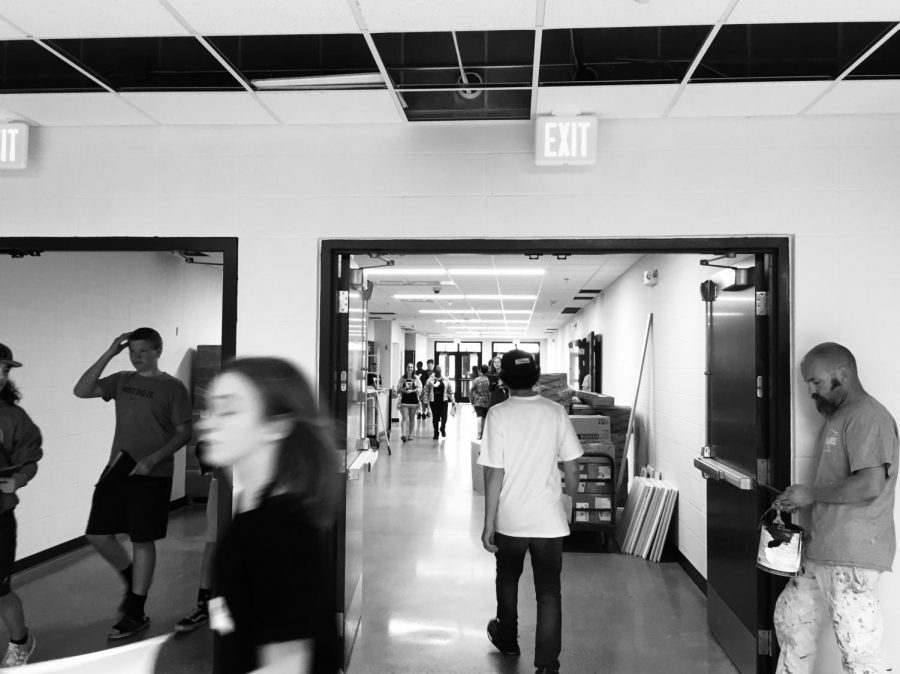Opinion: Should we ask for pronouns? Absolutely.
Walking through the crowded halls of Blaine High School, we glance at the faces of new Freshman, teachers, and students, and we make assumptions about each other. We judge based on appearances, based on race, gender, sex, occupation, age, ethnicity and other facets of identity.
This tendency, however, is harmful to us. It becomes a barrier to creating a welcoming community as we confine people into rigid, expected roles.
When I walk through Blaine high school today, some people might think, “Oh what a weird name, ‘Lame-a Loo-le-vicious’ and is she wearing guy clothes? *eye roll* Ugh another queer activist…”
We are all guilty of this. Often it’s even involuntary.
If a person walks up to me, … wait back it up… when you read “person” you probably already assumed male.
Well, say this person has a beard, I assume that they prefer the pronoun “He,” but maybe inside, he’s insecure. Our standards of masculinity have plagued him since childhood when he was taunted for being “too girly” when he preferred to play with his sister’s dolls.
Or, let’s say you see a black woman at a museum, and assume “Oh, she must be just some cleaning lady.” But actually, she’s a NASA aerospace engineer who has come to give a presentation on rockets to a group of schoolchildren.
These stereotypes of society have penetrated everywhere. Look no further than the halls of Blaine high school. Listen in the din and you’ll hear “Jock,” “Nerd,” “SPED,” “Freshie,” “Gay.” And now, in September 2019, we’ll add “VSCO Girl” to the list.
Last year, I visited Chicago, a city of 2.7 million. At the moment that I looked out from a skyscraper window to see ant-sized people below, I realized every single individual, from the garbage collectors to the businessmen in navy suits, carries within themselves a consciousness as deep as a well.
Behind the awkward first impression, that strange name, the color of skin, is a complex individual.
We try to encapsulate someone’s entire identity under a label that we slap upon them. This is impossible. No label can fully articulate our complexity, and our assumptions can result in pain, misunderstanding, and alienation. But don’t we strive to build a more perfect, cohesive, society?
Let’s take a look at a group of people who have dived into this well, a group of people that have pursued acceptance, that we can look to as an example.
LGBTQ+ community. It transcends all races, cultures, and even socioeconomic status, and at the core has tried to answer the question, what am I? Through this, the community has broken down the rigid binary of gender identity and the norms of sexual orientation.
It has pioneered going beyond assuming to understanding.
How can we apply this here, at Blaine?
Asking “How are you?” is overused. “Fine.” “Good.” It means nothing. Let’s try asking a different question:
“What are your pronouns?”
It’s simple: She/Her or He/Him or They/Them or a combination of these or others.
It might feel awkward at first, but the benefits outweigh the unsure looks you might get before this question becomes as traditional in our introductions as a handshake. It’s cost less, and you get that same feeling when a complete stranger opens a door for you as an act of kindness
It allows you to see someone with a clean slate, and It’s empowering when you are allowed to define who you are first. With the knowledge that gender is fluid, this question is absolutely necessary, as we can no longer assume pronouns based only on physical appearance.
Our society may not be free from judgment yet, but this simple question is a step forward. Through this exercise, we can start to rewire our minds to get into the habit of thinking twice before making a judgment on someone’s appearance. With this step, it can act as a segway to understanding other aspects of someone’s identity.
As seniors begin applying to colleges this fall they will discover that their applications will provide them with a place to state their preferred pronouns. Institutions want students to openly express their identity. Why can’t Blaine follow in this example?
So I challenge you now, on this First day of school, at a new job, making a new friend, reach out your hand and say: Hello, my name is Laima. My pronouns are She/Her. What are yours?



